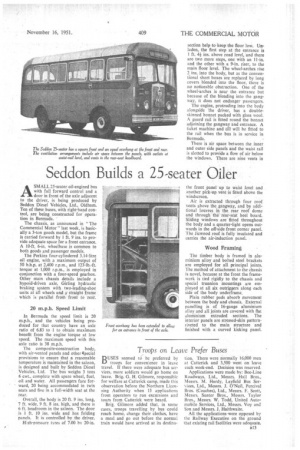Troops on Leave Prefer Buses
Page 47

If you've noticed an error in this article please click here to report it so we can fix it.
BUSES seemed to be preferred by troops for convenience in leave travel. If there were adequate bus services, more soldiers would go home on leave. Brig. G. H. Gilmore, responsible for welfare at Catterick camp, made this observation before the Northern Licensing Authority when 13 applications from operators to run excursions and tours from Catterick were heard.
Brig. Gilmore added that, in some cases, troops travelling by bus could reach home, change their clothes, have a meal and go out before the normal train would have arrived at its destine tion. There were normally 16,000 men at Catterick and 3,500 went on leave each week-end. Decision was reserved.
Applications were made by: Bee-Line Roadways, Ltd. Messrs. Hall Bros., Messrs. M. Hardy, Layfield Bus Services, Ltd., Messrs. J. O'Neil, Percival Bros. (Coaches), Ltd., Messrs. F. Scott, Messrs. Sunter Bros., Messrs. Taylor Bros., Messrs. W. Todd, United Automobile Services, Ltd., Messrs. Voy and Son and Messrs. J. Haithwaite.
All the applications were opposed by the Railway Executive on the ground that existing rail faoilities were adequate. 813




































































































